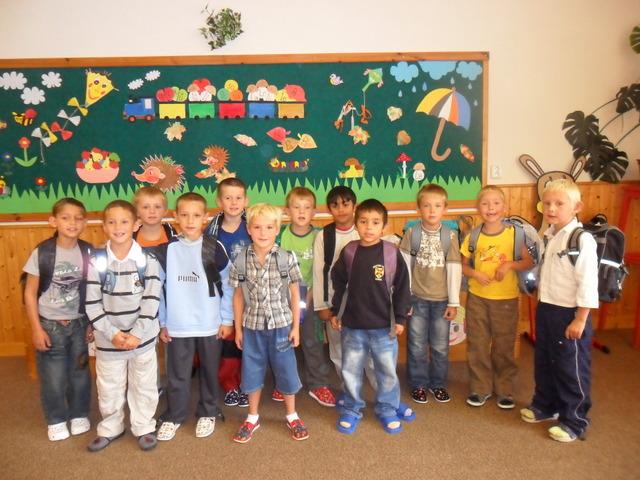Czech Republic: Non-Romani parents don't want their children in school with Romani ones

The new school year only began a few weeks ago in the Czech Republic, but in some places non-Romani parents are quickly changing the schools their first-graders are attending. The parents are bothered by what they view as high numbers of Romani children also attending the schools and believe their presence is holding all of the pupils back.
In one primary school in the town of Luže (Chrudim district), some parents are against the very large difference between the number of Romani children in one of two parallel first-grade classes. They don’t like the fact that in class 1.A there is only one Romani child, while in class 1.B half of the pupils are Romani.
Four non-Romani parents have decided their children will now commute seven kilometers to the town of Skutče to go to school instead. "We expressed our disillusionment to the director, and we were not alone. The director convened a class meeting of all of the parents where everyone quarreled, our white half were labeled racists, and nothing was resolved," father Petr Vostřel said.
School director Mgr. Ladislav Tlustoš subsequently published the following statement on the school website:
Addressing the situation in the first grade classes
On the basis of recommendations from the school board I have decided to preserve the existing distribution of children in the first grade classes. The board has also recommended that I consider the option of eventually moving some pupils from 1.B into 1.A.
I accept this recommendation and I am meeting with some parents from 1.B to discuss the opportunity to move their children into 1.A so a certain imbalance between the classes can be corrected. This will come at the cost of a different number of pupils in both classes.
I know I have made several errors and I would like to correct them. Unfortunately, the current situation and the emotional behavior around it do not afford me many options.
One sometimes makes decisions with good intentions which one later greatly regrets, especially when one determines that the children about whom one is particularly concerned are paying the price. I am therefore asking all parents, before they consider taking any radical steps, to reflect on whether those steps will really benefit their children.
I would be very unhappy if my errors resulted in parents making other mistakes. The children are the ones who will pay.
Ending the segregation of Romani people in the Czech Republic
The Czech Republic has been criticized for several years for segregating Romani children in the schools, and current changes underway are expected to end it. Last October a UN council called for eliminating the segregation of Romani children in the Czech Republic, and reports by the international human rights organization Amnesty International about the situation in the schools are also unfavorable.
According to AI’s annual report, the Czech schools have made only slight progress during the past five years on improving discrimination against Romani people. "This is a positive step toward eliminating a mechanism in the education system that prevents some children from accessing all levels of education. Once children are enrolled into a ‘practical primary school’, most of the time they never return to a normal one, because they will have no chance to make up for the lost time they spent in the ‘practical’ school," says Martina Pařízková, spokesperson for the Czech branch of AI.
"What is crucial is to ensure Romani children are being prepared in nursery schools that can help them start primary school with the same readiness as everyone else. Today not quite one-third of all Romani children attend preschool, compared to 90 % of non-Romani children," Pařízková says. The organization believes the government should also work on making sure all-Romani classes or predominantly Romani primary schools are created.
Currently a new government decree on this issue is going through the commenting process. If it is adopted, socially disadvantaged pupils would stop being educated in schools intended for children with intellectual disabilities by the end of this school year, while pupils who are disadvantaged for medical reasons would remain in such schools for three years from the time the decree is adopted.